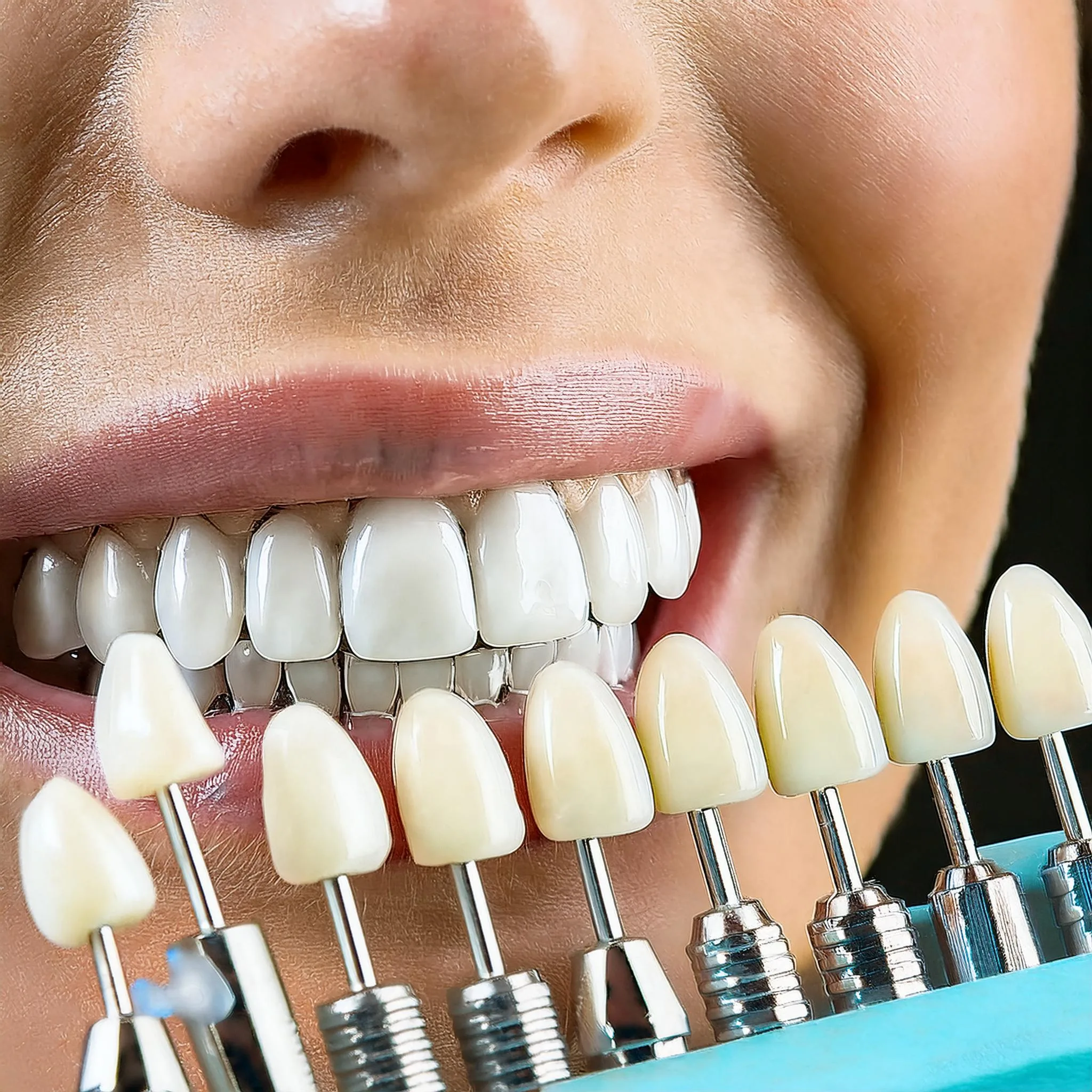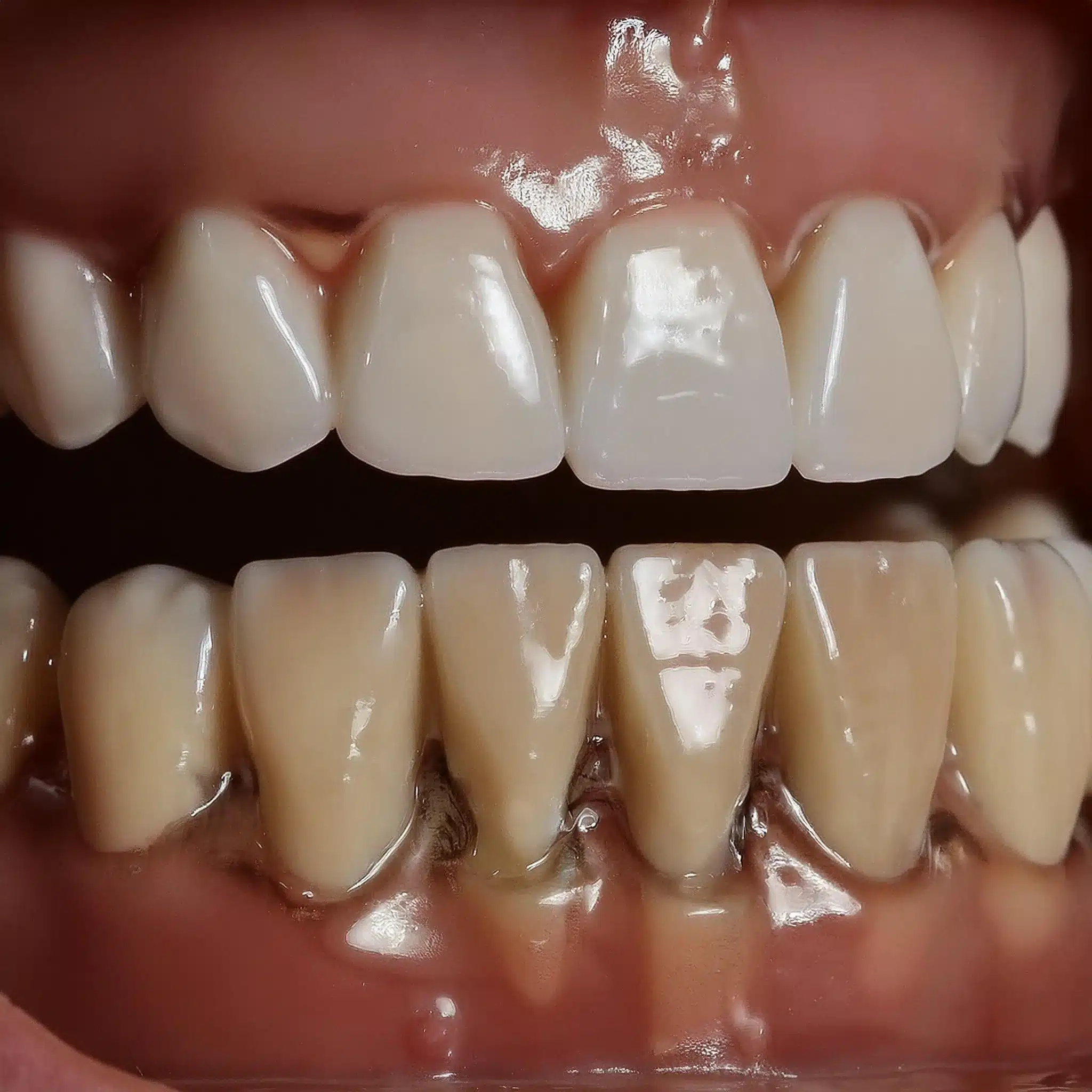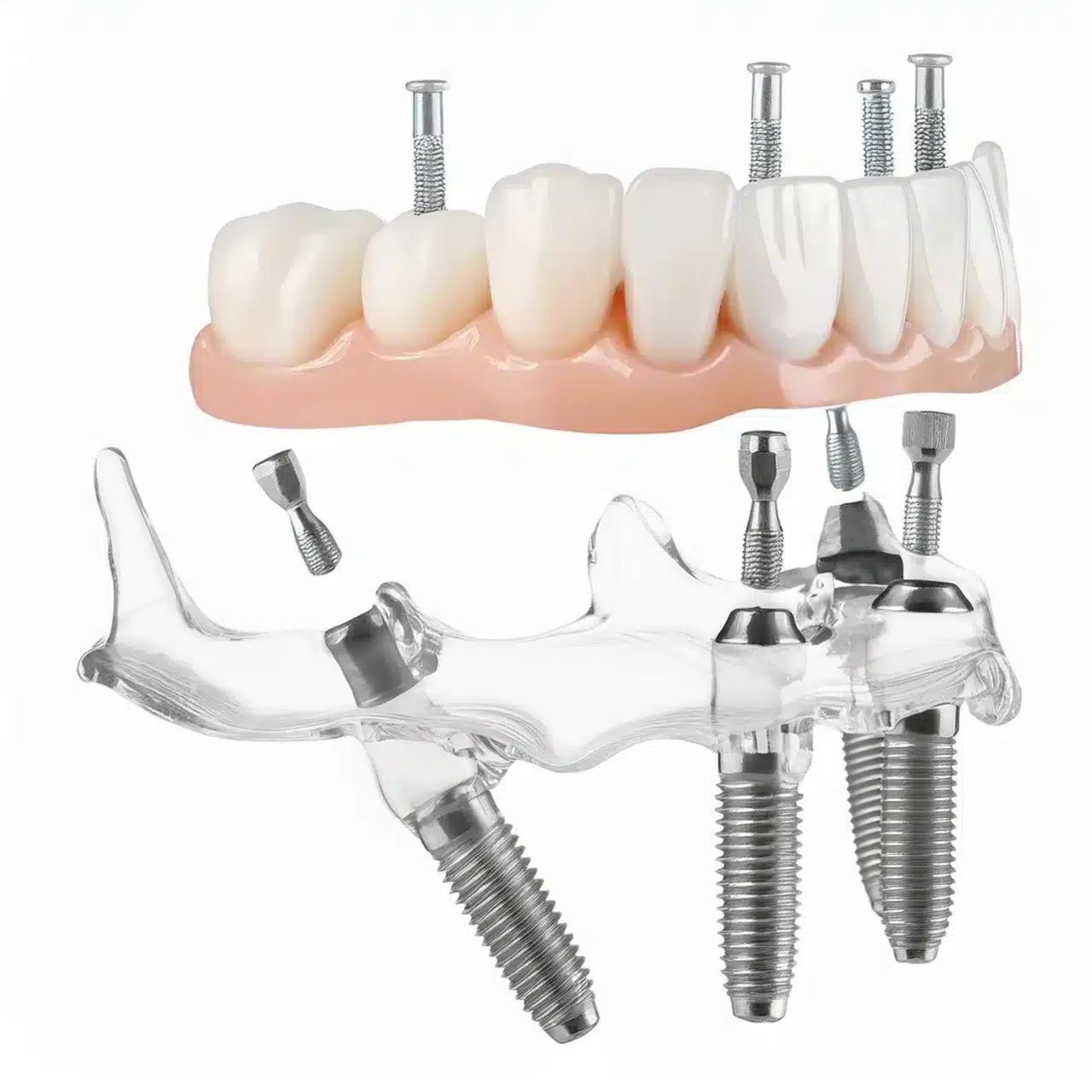Dental implants for seniors are a big deal for many seniors looking to get their oral health and confidence back.
If you’re a senior considering implants, you’re probably wondering if they work, how long they last, and if they’re right for you.
What are Dental Implants for Seniors?
Dental implants for seniors are a reliable solution for missing teeth, oral health and overall well-being. They’re made from biocompatible materials like titanium and have a 95% success rate over 10 years, making them a cost-effective and long-lasting option. Seniors should consider bone density and overall health before going ahead with the implant procedure.

Benefits of Dental Implants for Seniors
Oral Health
Dental implants provide a stable and long-lasting solution for missing teeth, which can greatly improve oral health for seniors.
By replacing lost teeth, implants help maintain jawbone density and prevent bone loss that occurs after tooth extraction.
This preservation of bone structure supports the remaining teeth and facial structure and appearance.
The use of biocompatible materials like titanium ensures a high success rate of osseointegration; studies show 90-95% (1)(2).
This integration with the bone gives a natural feel and function like natural teeth, so seniors can eat a varied diet without restrictions.

Quality of Life
Dental implants can greatly improve quality of life for seniors by allowing them to eat and speak properly.
Missing teeth can cause pronunciation and chewing difficulties, which affect nutrition and social interactions.
Implants are a permanent solution that feels and functions like natural teeth, boosts confidence, and allows seniors to participate more in social activities.
The psychological benefits of having a full set of teeth can’t be overstated; it contributes to a positive self-image and overall well-being.
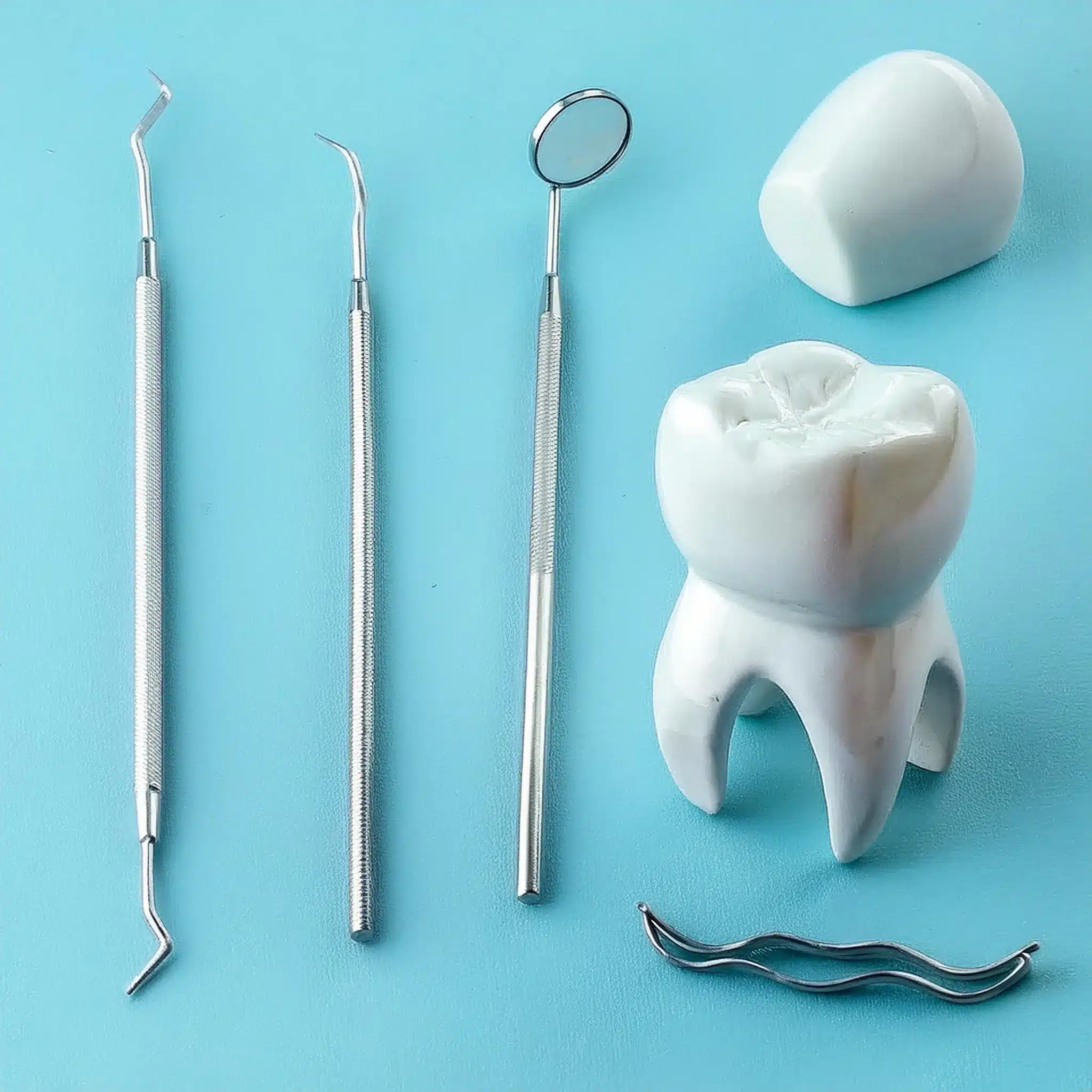
Long-Term Cost Effective
While the initial cost of dental implants may be higher than other tooth replacement options, they are long-term cost-effective.
Unlike dentures or bridges, which may need frequent adjustments or replacements, implants are designed to last a lifetime with proper care.
This durability means less ongoing dental work and cost in the long run.
Also, implants prevent further dental problems that can arise from missing teeth, such as shifting of adjacent teeth or bite problems, which can incur additional costs (3).
By investing in implants, seniors can have a stable and long-lasting solution for their oral health and financial well-being.
Who can get dental implants? Generally, anyone with good overall health and sufficient bone density can be a candidate for dental implants.
However, certain health conditions and medications can affect the success of the procedure.
| Përfitoni | Përshkrimi |
|---|---|
| Përmirësimi i shëndetit oral | Dental implants help maintain jawbone density, preventing bone loss and supporting remaining teeth (1). |
| Enhanced Quality of Life | Dental implants restore the ability to chew and speak properly, boosting confidence and social interactions (2). |
| Long-Term Cost-Effectiveness | Dental implants are designed to last a lifetime, reducing the need for ongoing dental work and saving money in the long run (3). |
Things to Consider for Seniors Getting Dental Implants
Health Conditions and Medicines
Seniors getting dental implants should be aware of how their health conditions and medications can affect the procedure.While dental implants and arthritis can coexist successfully with proper medical management, certain medications require special attention
Certain medications, such as bisphosphonates used to treat osteoporosis, can cause osteonecrosis of the jaw (ONJ), a condition that affects bone healing and can compromise implant success (3).
Selective serotonin reuptake inhibitors (SSRIs) may also interfere with bone metabolism, which can affect implant integration (4)(2).
Seniors should disclose their medical history and current medications to their dentist to assess any risks.
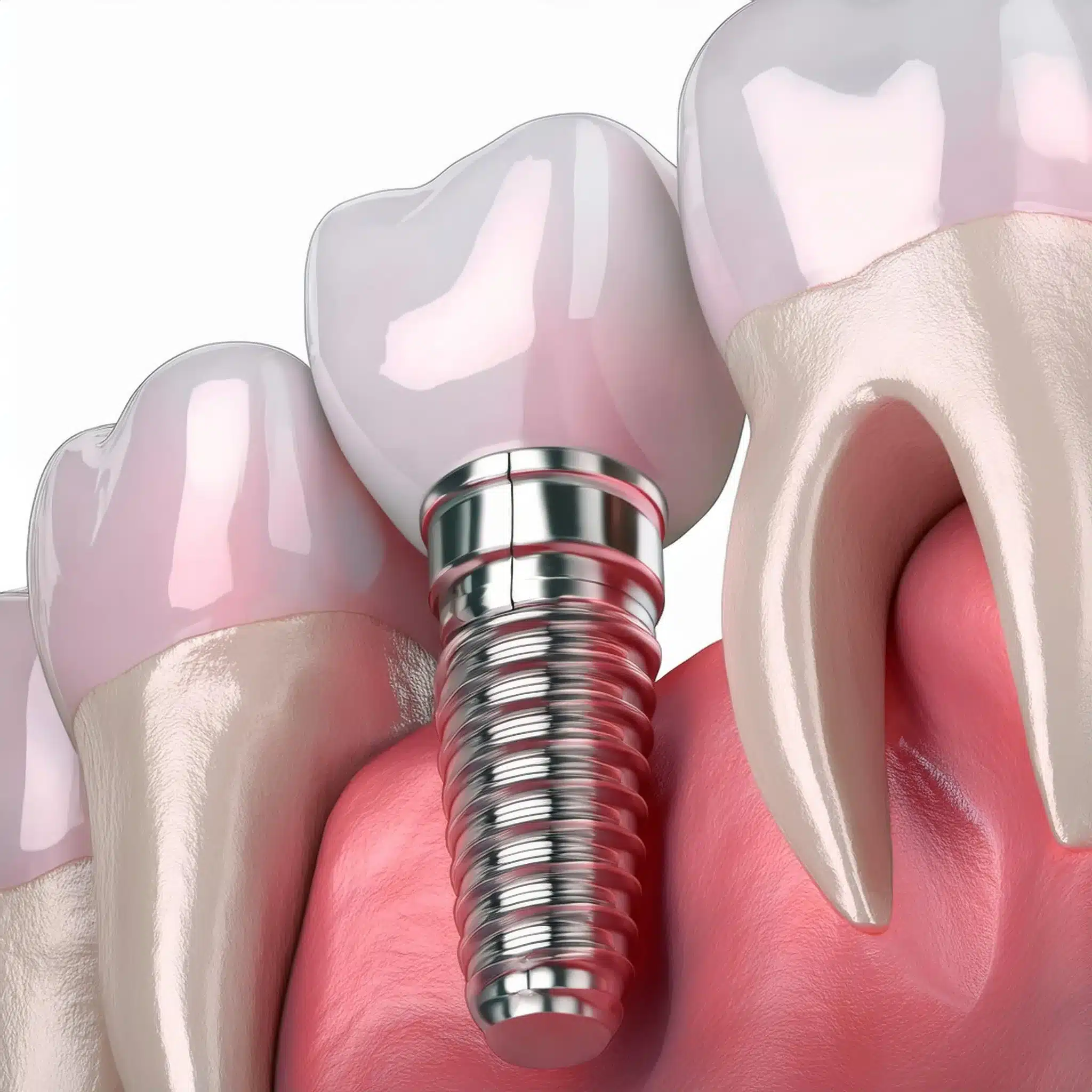
Bone Density and Implant Success
Bone density is a crucial factor for dental implants.
Seniors with lower bone density may have challenges with implant integration and stability.
Studies show that bone type density is a critical factor; Type I bone has the lowest failure rate of 0.3%, and Type III bone has a higher failure rate of 3% (3).
Also, aging can affect the density of newly formed bone around implants, which may impede but not completely prevent osseointegration (6).
Understanding bone density and its effect on implant success is important for seniors to make informed decisions for their oral health.
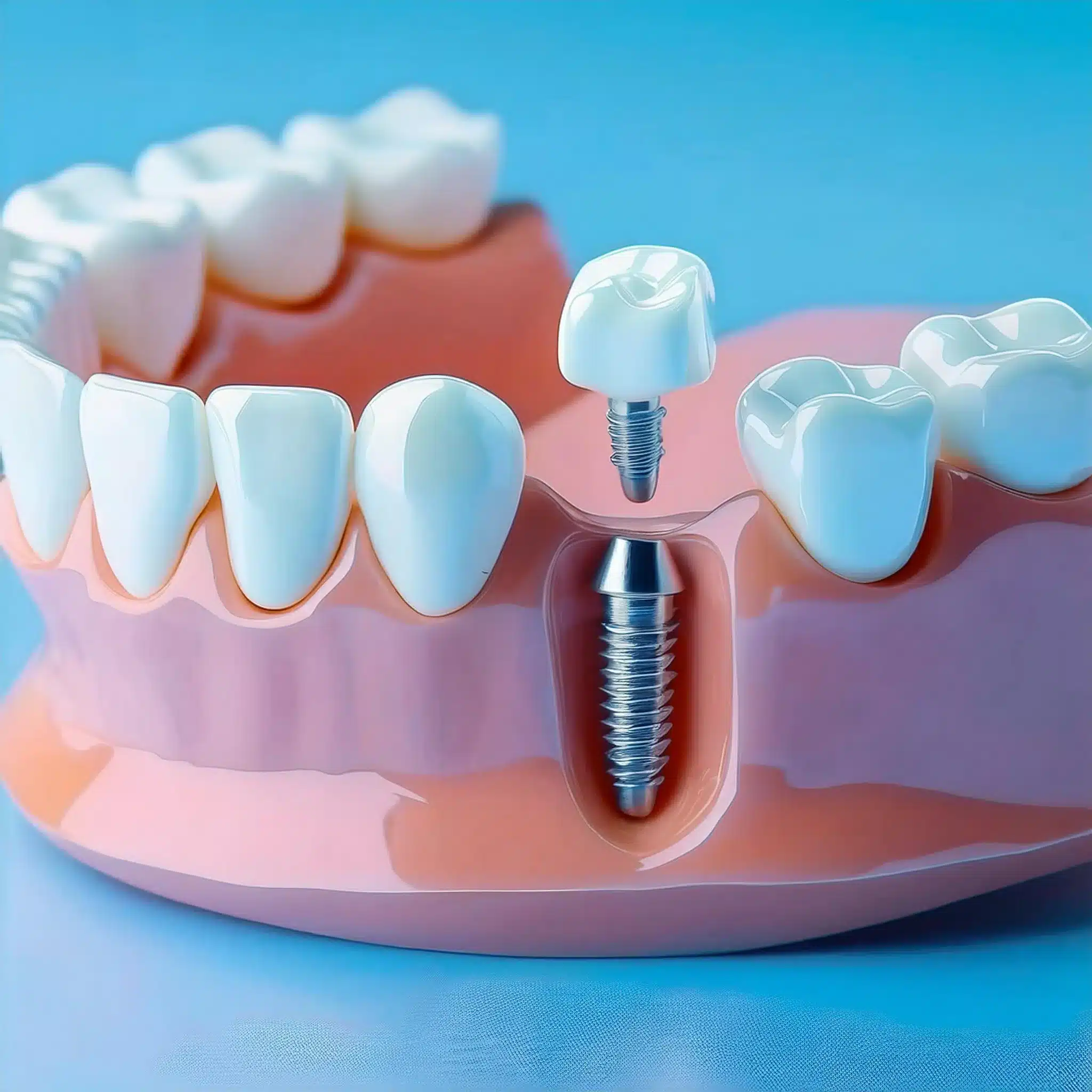
Financial and Insurance
Seniors should not miss the financial aspect of dental implant surgery.
The cost of dental implants can vary depending on the number of implants and additional procedures required.
In the UK, a single implant can cost from £2450 (4).
Seniors should plan their finances and check their insurance to ensure the treatment fits their budget.
Understanding the financial implications and planning ahead can help seniors make the most out of this investment for their oral health and quality of life.
| Bone Type | Success Rate (%) |
|---|---|
| Type I | 99.7 |
| Type II | 98.5 |
| Type III | 97.0 |
| Type IV | 85.0 |
The Dental Implant Procedure for Seniors
Consultation and Planning
The consultation and planning stage is key to the success of dental implant surgery for seniors.
During this stage, the dentist will assess the patient’s overall health, bone density, and the condition of their teeth and gums.
This will determine if dental implants are suitable and what’s the best approach for the procedure.
Advanced imaging techniques such as cone beam computed tomography (CBCT) will be used to assess bone quality and plan the precise placement of the implants (5).
This detailed planning will ensure the implants are placed in the optimal position for osseointegration and long-term stability.
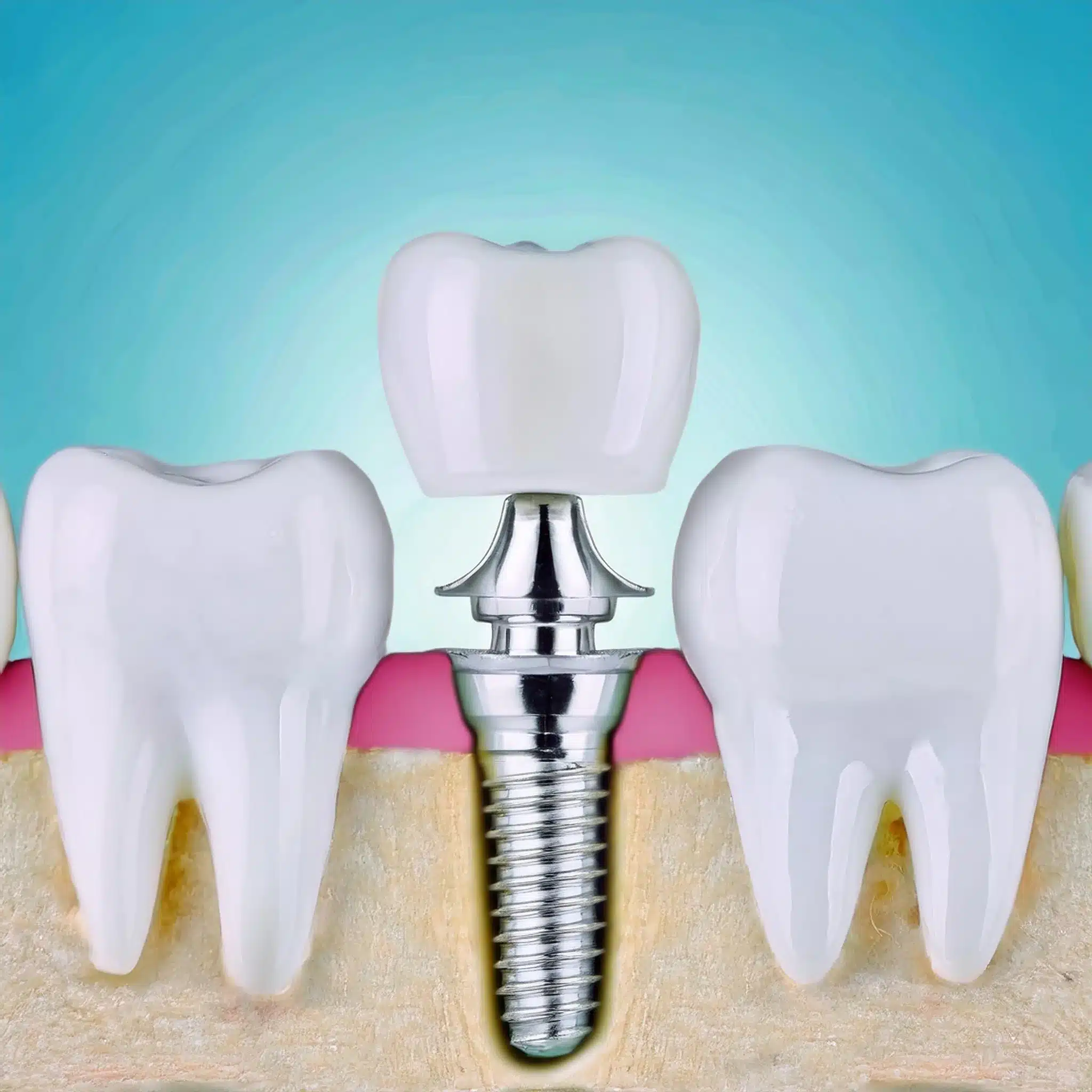
Implant Placement Surgery
The implant placement surgery involves placing the dental implant into the jawbone.
This is done under local anesthesia to minimize discomfort.
The dentist will make a small incision in the gum to expose the bone and then drill a hole into the bone where the implant will be placed.
The implant is then placed into the hole, and the gum is closed over it.
The healing process of osseointegration starts immediately after the surgery and can take several months (1).
During this time, the implant will integrate with the surrounding bone and provide a stable base for the new tooth.

Healing and Recovery
The healing and recovery stage after dental implant surgery is a critical phase that requires attention.
Seniors should follow a soft diet for a few days after the surgery to avoid putting too much pressure on the implant site.
Regular follow-up appointments with the dentist are necessary to monitor the healing and to ensure the implant is integrating with the bone.
The whole healing process can take 3 to 6 months, after which the abutment and crown can be placed to complete the restoration (2).
Proper care and maintenance during this period is crucial to prevent complications and to ensure the long-term success of the implant.
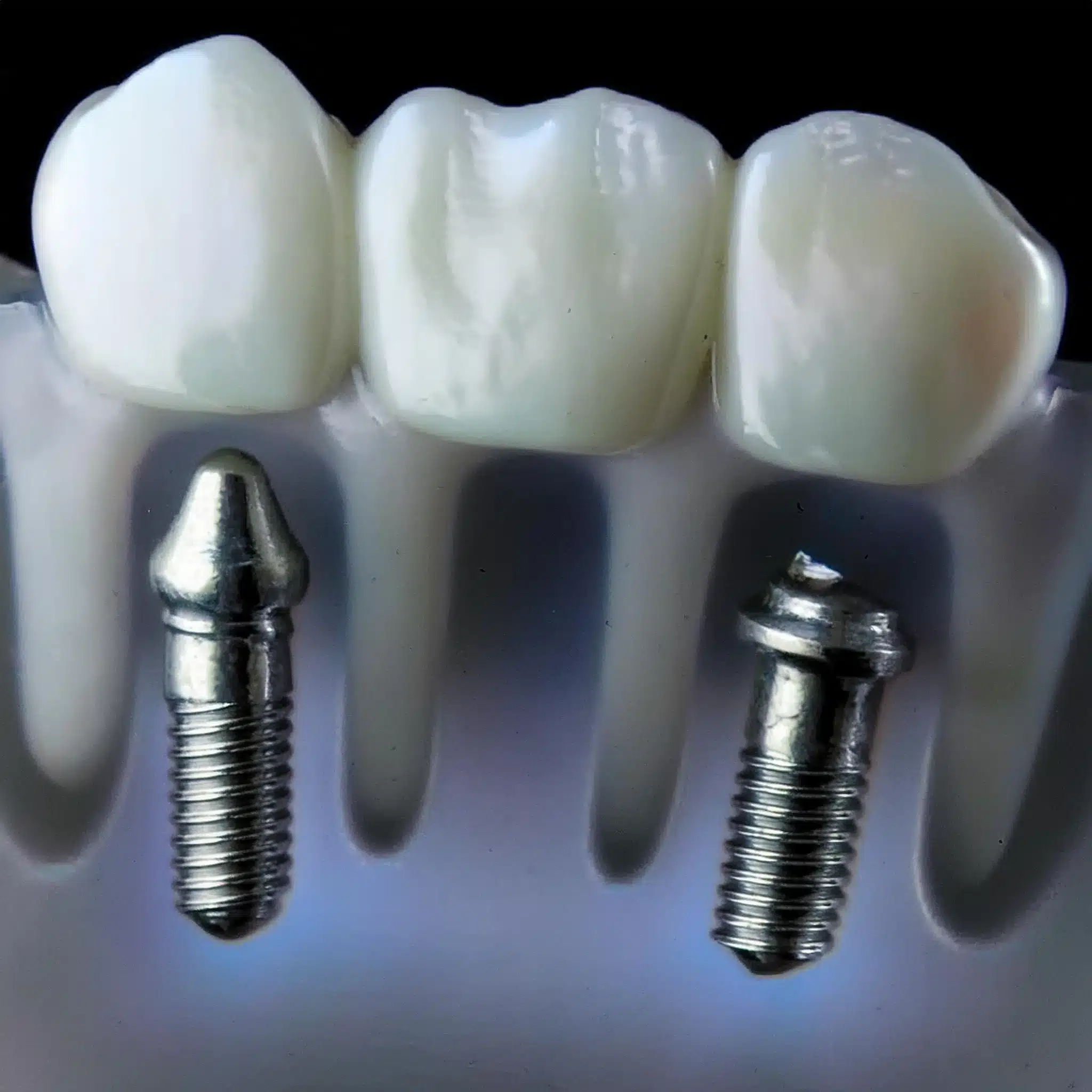
Përfundim & Çështje kryesore
Çelës-Takeaways
Dental implants are a reliable solution for seniors to replace missing teeth for oral health and quality of life.
The success rate of dental implants is 95% over 10 years, making them a cost-effective and durable option.
Seniors should consider bone density and overall health before going for the implant procedure.
Proper surgical techniques and maintenance are key to high success rates and low risks.
konkluzioni
Dental implants for seniors are a stable and durable solution to replace missing teeth for oral health and quality of life.
By understanding the benefits, considerations, and procedures involved, seniors can make informed decisions about their dental health.
With proper care and maintenance, dental implants can last a lifetime and are a long-term solution for seniors to regain their confidence and oral well-being.
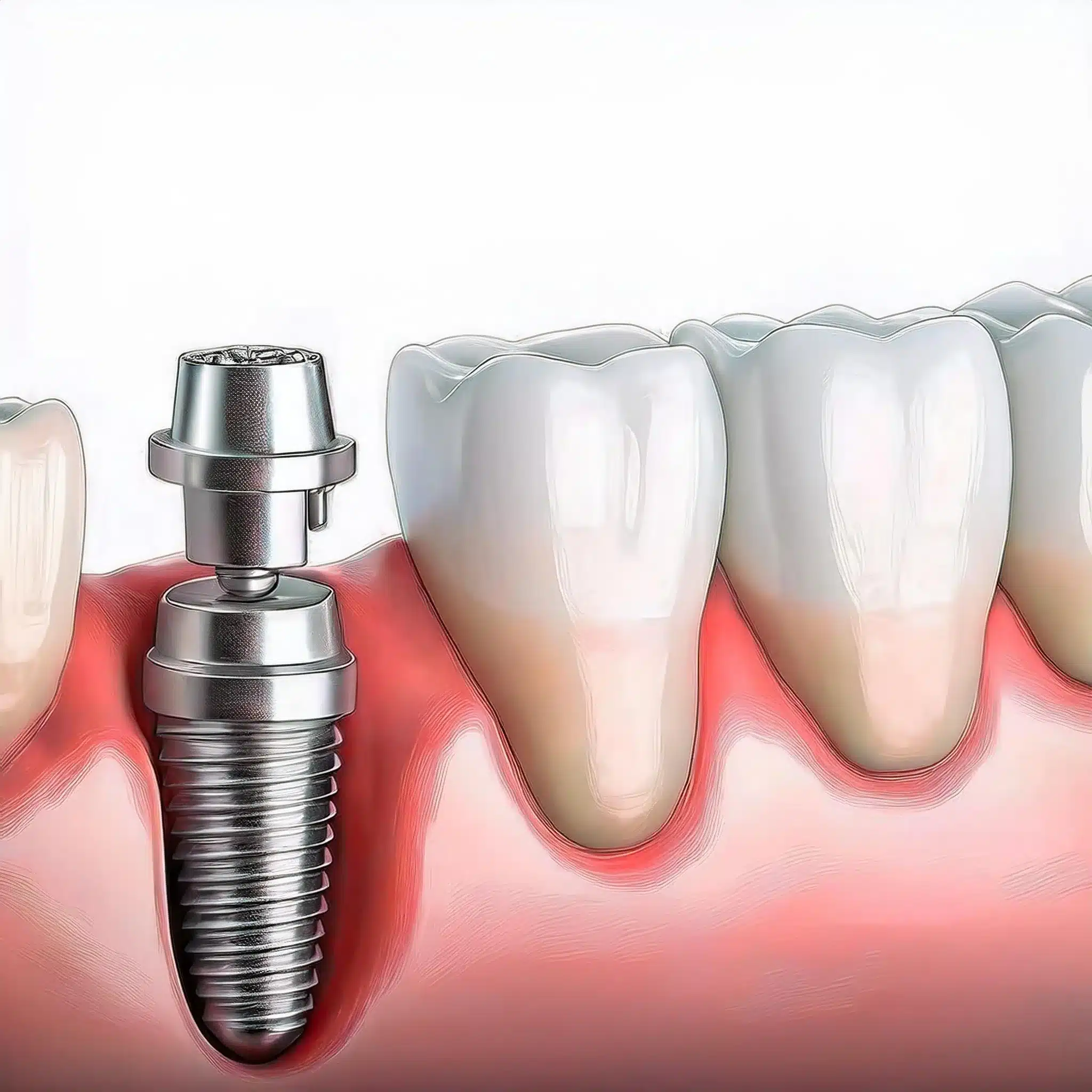
FAQ
Referencat
(1) Panchal M, et al. Dental implants: A review of types, design analysis, materials, additive manufacturing methods, and future scope. J Prosthodont Res. 2022;66(1):1-11.
(2) Guillaume B. Dental implants: A review. J Stomatol Oral Maxillofac Surg. 2016;117(1):1-8.
Neni: Implantet dentare: Një përmbledhje
(3) Albrektsson T, et al. Dental implants: a review. Int J Oral Maxillofac Implants. 1992;7(1):75-94.
Neni: Dental implants: a review
(4) Misch CE, et al. Dental implants: A review. J Dent Res. 2016;95(9):1084-1090.
Neni: Implantet dentare: Një përmbledhje
(5) Smith R, et al., An introduction to dental implants. Br Dent J. 2024;236(5):245-250.
Neni: An introduction to dental implants
(6) Esposito M, et al. Dental Implants. Clin Oral Implants Res. 2017;28(10):1280-1287.
Neni: Implantet Dentare
